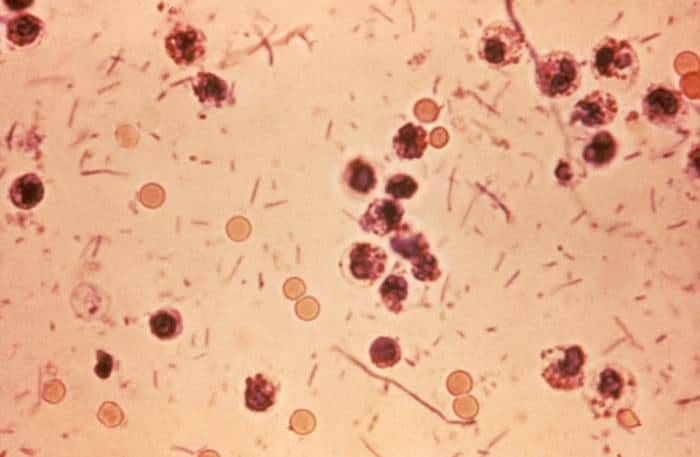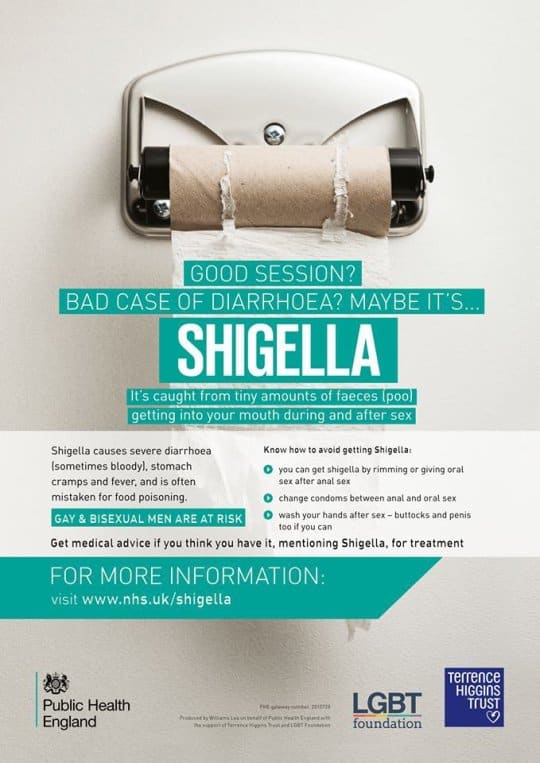
Shigella infections can be transmitted via sex and symptoms are often mistaken for food poisoning.
The main symptom to be looking out for of this strain of multi-drug-resistant typically include diarrhea lasting for more than a week despite treatment with antibiotics.
Although resistant to several antibiotics, the strain remains susceptible to others including chloramphenicol, ertapenem, temocillin, mecillinam and fosfomycin reports AIDSMap.

“The risk of sexual transmission can be reduced by avoiding oral-fecal contact and by washing hands and showering after sex. Using protection for fingering, rimming and fisting, including gloves and changing condoms between anal and oral sex also help reduce the risk of transmission.”
Public Health England hasn't assessed all the information about the risk factors associated with contracting the drug-resistant strain. However, several behavioral characteristics were associated with a serious outbreak of Shigella among MSM in the UK in 2014, including:
High numbers of sexual partners met online or at sex parties.
Chemsex, especially the use of mephedrone, methamphetamine, ketamine and GBL.
Injecting drug use.
A person can also pick up the gut infection from licking skin, condoms or toys which haven't been cleaned properly.
2,327 laboratory-confirmed cases of shigella infection were reported in England, Wales and Northern Ireland in 2014 compared to 1,991 cases the previous year. At least 20 per cent of cases were related to travel.
Confirmed cases in the UK have risen in recent years according to Public Health England (PHE) “this is most likely due to a rise in infections among gay and bisexual men.”



